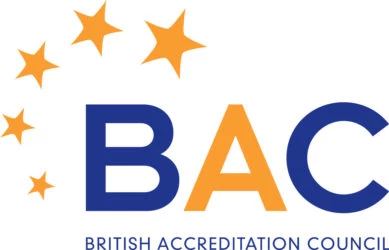Ars Gratia Artis (Art for art’s sake) – MGM Studios Superbia in Proelio (Pride in battle) – Manchester City FC
Superbia in Proelio (Pride in battle) – Manchester City FC
Hinc lucem et pocula (From this place, we gain enlightenment and precious knowledge) – University of Cambridge
From universities to football clubs to film studios to Reach Cambridge, institutions, teams and organizations across the world use Latin mottos to sum up their motivation and mission. These phrases sound distinguished, noble, and historic, whether you can read Latin or not. But if not many people understand Latin anymore, why use it?
Though Latin is, technically, a ‘dead language’, its influence is everywhere. Much of English vocabulary is Latin-based (the word ‘motto’, for instance, comes from the Latin muttum). Knowing Latin comes in handy if you want to learn Spanish, French, Italian, Romanian or Portuguese, all languages that are descended from Latin. Every animal and plant is given a scientific name that is most usually derived from Latin so that it can be understood across the world (a cat may be called a ‘chat’ in French, ‘Katze’ in German, a ‘paka’ in Swahili, but it is still Felis catus everywhere). Latin philosophy and literature, from the works of Romans like Cicero and Ovid to later English figures like John Milton or Isaac Newton, have influenced writers and thinkers ever since.
 A Latin motto seems particularly appropriate in a place like Cambridge, drawing on the city’s academic history and traditions. Cambridge University is over 800 years old – back then and for many years after, Latin was the universal language of scholarship, and all of the classes would have been taught in Latin. To this day formal occasions often still incorporate Latin: graduation ceremonies are conducted in Latin, and in many colleges, a Latin grace is delivered before formal dinners.
A Latin motto seems particularly appropriate in a place like Cambridge, drawing on the city’s academic history and traditions. Cambridge University is over 800 years old – back then and for many years after, Latin was the universal language of scholarship, and all of the classes would have been taught in Latin. To this day formal occasions often still incorporate Latin: graduation ceremonies are conducted in Latin, and in many colleges, a Latin grace is delivered before formal dinners.
All of which brings us to our own motto. Since its inception, Reach Cambridge has had Sic Itur Ad Astra emblazoned on its logo – but what does that mean? And how does it fit into the overall theme of academic excellence? We asked the Director of Reach Cambridge, who founded the organization to provide young people with opportunities to develop not only academically but in independence too.
 “Sic Itur Ad Astra means ‘thus one journeys to the stars’ or ‘reach for the stars’ in common parlance, before S Club 7 appropriated the phrase (Reach Cambridge got there first!). It is borrowed from Virgil’s ‘Aeneid’, a 2,000 year old text I studied at school and university, but it was my Director of Studies in Classics at Cambridge who suggested it as a motto. The idea was to have a motto which was aspirational but also steeped in history and culture, fitting for a program which is all about encouraging our students to widen their horizons and dream big.”
“Sic Itur Ad Astra means ‘thus one journeys to the stars’ or ‘reach for the stars’ in common parlance, before S Club 7 appropriated the phrase (Reach Cambridge got there first!). It is borrowed from Virgil’s ‘Aeneid’, a 2,000 year old text I studied at school and university, but it was my Director of Studies in Classics at Cambridge who suggested it as a motto. The idea was to have a motto which was aspirational but also steeped in history and culture, fitting for a program which is all about encouraging our students to widen their horizons and dream big.”
Inspired to create your own Latin motto, but don’t know the language? We found this handy website – carpe diem!




